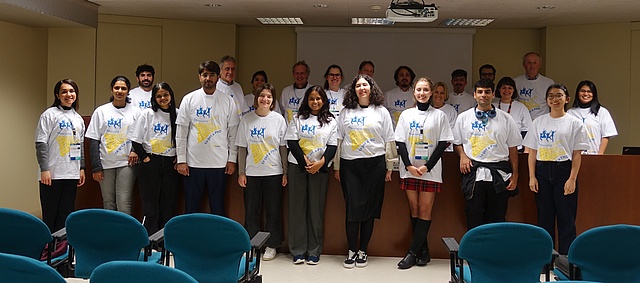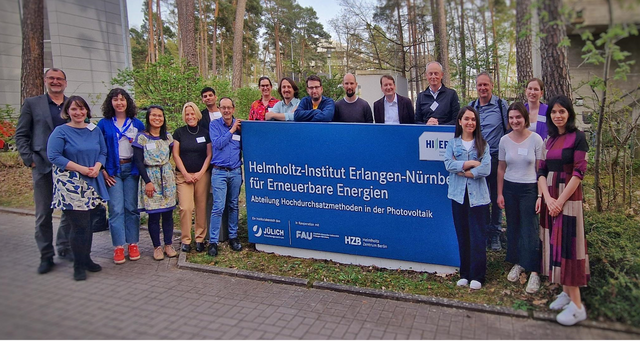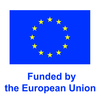4th OPVStability Training Workshop - October 15-16, 2025
Hennickehammars Herrgård, Filipstad, Sweden
The 4th OPVStability Training Workshop and Project Meeting was successfully held at Hennickehammars Herrgård in Filipstad, Sweden, hosted by Karlstad University. The event brought together doctoral candidates, supervisors, and partners for an engaging week of learning, collaboration, and project development.
The training programme included interactive courses on Understanding Impact, UCD Impact Planning Canvas, NABC Model in Pitching, and the Value Creation Forum: Structured Feedback, led by James Lees and Eamonn McCallion from the KAU Grants and Innovation Office.
In addition to the training sessions, a Supervisory Board Meeting was held to review project updates, followed by doctoral candidates’ project presentations and Q&A sessions.
Participants also enjoyed the beautiful autumn weather, taking the opportunity to go rowing on the lake and enjoy the serene surroundings of Filipstad.
Infinity PV Workshop – February 5-6, 2025
The OPVStability consortium held a two-day hands-on Workshop on Printed Solar Cells from 5th to 6th February 2025. Hosted by InfinityPV, the workshop focused on the practical aspects of roll-to-roll (R2R) fabrication and characterization of organic photovoltaic (OPV) devices.
Day 1 included a comprehensive walkthrough of the printing equipment, preparation of substrates and inks, and step-by-step printing of key layers (HTL, ETL, and active layer). Participants also performed quality assurance and UV-lamination of solar cells, with in-depth testing using solar simulators and LBIC imaging.
Day 2 built upon the previous day's work, advancing to the printing of transport and electrode layers, laminating finished cells, and testing complete devices. The sessions emphasized quality control using LR2RC tools and practical training in cutting, encapsulating, and analyzing printed OPV samples.
The workshop provided valuable training in printed solar cell technology, promoting knowledge exchange and enhancing technical skills within the consortium.

First Progress Meeting and 2nd on-site Training, Trieste
In the last week of November, CERIC-ERIC hosted the First Progress Meeting of the OPVStability project at its Italian premises, Elettra Sincrotrone Trieste, Italy. The five-day event brought together 10 doctoral candidates, their supervisors, and the European Commission Project Officer for intensive training, discussions, and strategic planning for the project’s next phases.
Suggestion for the 1st part (above):
In the last week of November 2024, CERIC-ERIC hosted the first Progress Meeting of the OPVStability project at Elettra Sincrotrone Trieste, Italy. Over the course of the five-day event, 10 doctoral candidates, their supervisors, and the European Commission Project Officer convened for immersive trainings, in-depth discussions, and strategic planning to shape the project's next phases.
From November 25th to 29th, PhD students participating in OPVStability deepened their expertise in advanced synchrotron light techniques. They attended lectures and engaged with experienced scientists at Elettra’s beamlines, gaining valuable insights into tools and methodologies crucial for their research on organic photovoltaic (OPV) stability.
The program also included workshops focused on soft skills development, covering topics such as public speaking, resume writing, and social media communication. These sessions aimed to equip participants with essential competencies for their academic and professional growth.
“It was inspiring to exchange ideas within such a dynamic and goal-oriented consortium,” shared Manan, one of the students. “Working alongside so many talented individuals was incredibly motivating.”
The meeting highlighted the importance of face-to-face interactions in fostering collaboration. Participants valued the opportunity to learn from each other and align their efforts toward the project’s ambitious goal: addressing the limited durability of organic solar cells through innovative architectures and structures.
“It was a pleasure to finally meet all the doctoral candidates, supervisors, and the Project Officer,” added Devina. “The open discussions provided valuable insights into everyone’s diverse backgrounds and future plans.”
A special thanks goes to Project Officer Apostolos Paralikas for his thoughtful feedback and guidance, which will be instrumental in shaping the project’s progress.
“I happy that now all doctoral candidates are on board of OPVStability. It was a really good meeting, with fruitful discussion with the candidates, the project partners as well the project officer.” added Gregor, “One strength of OPVStability is the excellent training opportunities in order to educate future scientist with all their professional and personal skills.”
Looking ahead, over the next three years, the project’s doctoral candidates will focus on collecting an extensive dataset on organic photovoltaic degradation mechanisms, making their findings openly accessible to the scientific community in line with Open Science principles.
The next project meeting is scheduled to take place next year in Linz, hosted by Johannes Kepler University Linz. We look forward to seeing you there!

Project Kick-off Meeting and 1st Training Event
The Training took place in Nurnberg-Erlangen, Germany on April 8 – 11, 2024
On-site Visit: Solar Fabrik at Energie Campus Nurnberg (ECN)
The Training event also included lab visits to i-MEET and HI-ERN, two state-of-the-art research facilities specializing in OPV technology. These tours provided students with first-hand exposure to cutting-edge equipment and methodologies used in OPV research. Additionally, participants visited the SolarFabrik at Energie Campus Nürnberg, where they gained valuable insights into the printing of organic photovoltaic
This visit was accompanied by talks from Tobias Sauermann from ASCA on industrial production of OPVs as well as Andreas Distler and Michael Wagner from the SolarFarbrik.
Workshop: Big Data, Statistics, and Machine Learning
Lecturer: Harald Oberhofer, University of Bayreuth
An essential part of the training was a workshop on “Big Data, Statistics, Data Mining, and Machine Learning,” equipping DCs with advanced analytical tools necessary for processing and interpreting large datasets in OPV research. As the complexity of the data generated from OPV testing and experimentation increases, these tools will be crucial for uncovering patterns, making predictions, and identifying stable materials and architectures. This skill set will enhance the DCs’ ability to contribute to the project’s long-term goal of improving OPV stability.

is to individually educate and train young, motivated researchers to be the next generation of scientists in the field of organic electronics. Thanks to the combination of universities, industrial companies, and large-scale research facilities, an intersectoral and interdisciplinary environment has been established for them.
An individual career development plan will be the basis for each DC's training. This plan will be installed early on between the DC, the supervisory team, and human resources experts and will be regularly updated.
OPV Stability will additionally offer the DCs a broad spectrum of training activities—network-wide or individual—on scientific and transferable skills.

